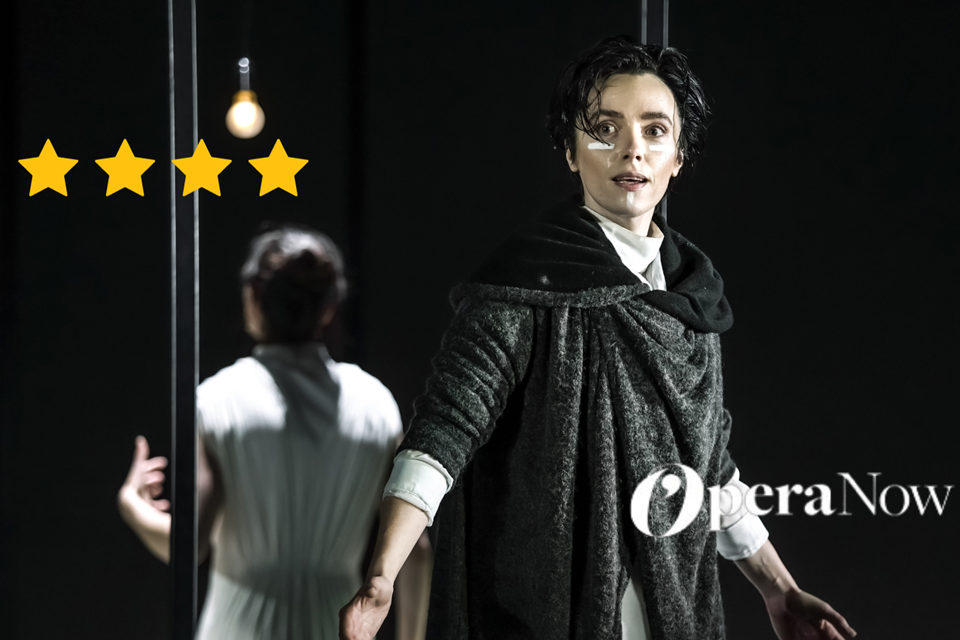<p>
Strong commitment and effective storytelling underpinned Olivia Fuchs’s production of Handel’s opera seria at the London conservatoire
The oppressive presence of a rigid society fills the stage of Royal Academy Opera’s production of Handel’s Ariodante, effectively demonstrated with a whiteboard detailing the rules in this court – infidelity will result in death for the woman, only a man can defend a woman’s honour, and she will be judged by her purity. Immediately the dynamic sharpness is reflected in Yannis Thavoris’ stark set design and Jake Wiltshire’s cold lighting.
Though an unembellished set, Olivia Fuchs creates a lively world with her cast. The swift Handelian action of two betrothed lovers, a succession announcement and a villain ready to ruin it all is captured well as ensemble members pass through the window to the world, a large metal frame and a simple chair. Clara Orif played an earnest Ginevra, the top of her voice shining and her coloratura bubbling like vocal champagne. Both her and Anghard Rowlands in the role of Ariodante were a picture of youthful sincerity, while Charles Cunliffe brought a great gravity to his role as the King of Scotland, with warmth in every corner of his voice.
Rebecca Hart as Polinessa had a machiavellian stage presence, and substantial chest voice – her manipulation of Erin O’Rourke’s Dalina was an Act 1 highlight, as the sensuality and submission had a dramatic maturity, and brought their voices alive as they agreed to the deception which almost cost Ginevra her life.
The historical elements meeting the modern world were conveyed in the striking costuming, monochrome with elements of Alexander McQueen met with dystopian COS, and the chorus was utilised amusingly in this realm, bustling as a press conference for the wedding announcement, and with kitschy dance moves, choreographed by Monica Nicolaides, charmingly performed during the sung ensembles.
As the Act I joviality disperses the tragic elements ensue. Polinessa’s plan to steal the throne is enacted, Ariodante is convinced of the betrayal, and Henry Ross shines as the hard headed Lurcanio, with a robust depiction of a man dedicated to honour – his voice is stirring, and delivery unrelenting.
As developing singers, there were areas where the singers’ middle voices weren’t quite as filled in as the upper and lower registers, however the commitment was strong and rendered their storytelling effective. There were moments where singers took safe risks, and reached for the edges of their dramatic potential, particularly in the case of O’Rourke and Hart, who both filled in the edges of nuanced, fallible characters with vocal dedication.
The great challenge of any Handel opera is maintaining dramatic flow through endless da capo arias. Without a lot of set to work with, the young singers are tasked with trusting their physicality, mixing stillness with blocking and gesture. Some were still finding their feet with this, however in the opera’s greatest hit ‘Dopo Notte’, Rowlands showed great versatility, comfortable stage presence and maintained the jubilant scene with a vibrant, flexible voice, and a confidence in the space.
The trial by ordeal carried great power, the severity of the moment captured in the simplicity of a single hanging lightbulb, and Orif’s suffering running through some very impressive pianissimo singing. It created a satisfying finale, when the board of rules is inverted, the layers of clothing we saw put on in the beginning to indicate class are taken off, and the characters are stripped to their humanity – suggesting a world where these rules don’t dictate their treatment of one another.
David Bates took great care with every vocal line and the different colours in the orchestra, effectively supporting the young singers, tackling a vocally and dramatically challenging work.
Until 24 November ram.ac.uk


